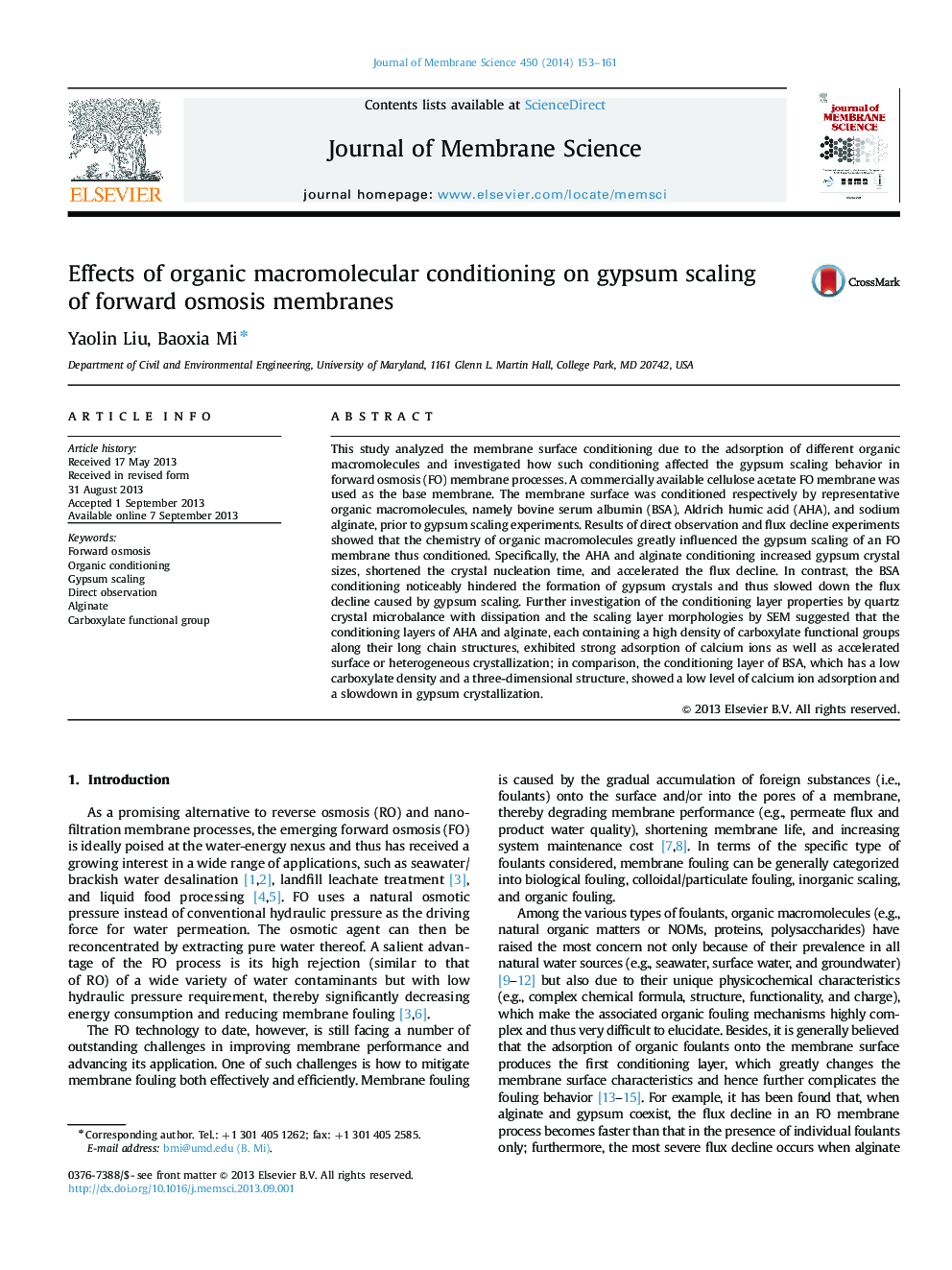| Article ID | Journal | Published Year | Pages | File Type |
|---|---|---|---|---|
| 633835 | Journal of Membrane Science | 2014 | 9 Pages |
Abstract
This study analyzed the membrane surface conditioning due to the adsorption of different organic macromolecules and investigated how such conditioning affected the gypsum scaling behavior in forward osmosis (FO) membrane processes. A commercially available cellulose acetate FO membrane was used as the base membrane. The membrane surface was conditioned respectively by representative organic macromolecules, namely bovine serum albumin (BSA), Aldrich humic acid (AHA), and sodium alginate, prior to gypsum scaling experiments. Results of direct observation and flux decline experiments showed that the chemistry of organic macromolecules greatly influenced the gypsum scaling of an FO membrane thus conditioned. Specifically, the AHA and alginate conditioning increased gypsum crystal sizes, shortened the crystal nucleation time, and accelerated the flux decline. In contrast, the BSA conditioning noticeably hindered the formation of gypsum crystals and thus slowed down the flux decline caused by gypsum scaling. Further investigation of the conditioning layer properties by quartz crystal microbalance with dissipation and the scaling layer morphologies by SEM suggested that the conditioning layers of AHA and alginate, each containing a high density of carboxylate functional groups along their long chain structures, exhibited strong adsorption of calcium ions as well as accelerated surface or heterogeneous crystallization; in comparison, the conditioning layer of BSA, which has a low carboxylate density and a three-dimensional structure, showed a low level of calcium ion adsorption and a slowdown in gypsum crystallization.
Related Topics
Physical Sciences and Engineering
Chemical Engineering
Filtration and Separation
Authors
Yaolin Liu, Baoxia Mi,
